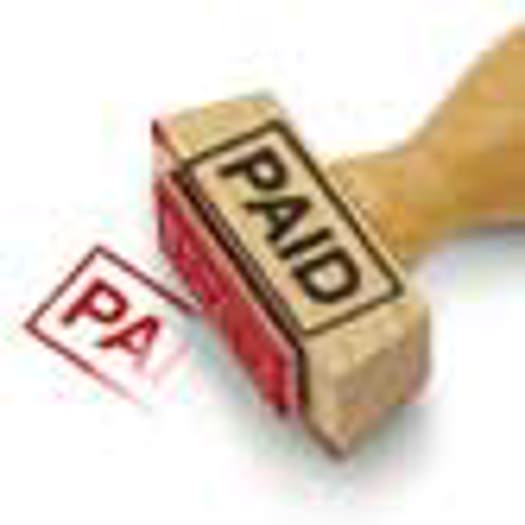One of the latest features on printweek.com, PrintWeek's website, is a downloadable list of the the companies that have fallen by the wayside over the past few months. It can be accessed by clicking on the ‘Administrations 2009' button on the left-hand side of the home page. Not only does it list which firms have folded, it also indicates why - bad debt, overcapacity, financial downturn and cashflow are just a few of the now-familiar terms.
But if you look closely, there's another column which suggests that, in some cases, administration doesn't mean the end of the road. There are some knights in shining armour out there who are coming to the rescue of ailing businesses and buying out their assets.
But this isn't a philanthropic gesture. For anyone thinking of buying a business, now might actually be a good time. With insolvencies on the rise, there are good deals to be found and with a bit of forethought, you can pick up additional capacity or an additional service, which is always useful in today's competitive environment.
However, as with any major purchase, it is vital that you know what you're letting yourself in for; skimp on the details and you might hit a few nasty surprises.
Working in harmony
The first thing to consider is synergy. Ian Brown, managing director at Principle Partners, which advices companies on buying and selling, believes this is critical. "Whatever you purchase, it has to be a natural extension to your business," he says. "If the synergy is correct then it can be a great opportunity. But it has to be a business that works for you."
Paul Holohan, chief executive at Richmond Capital Partners, adds that an acquisition can bring with it new customers, additional equipment and, in some cases, new markets. "There can be good deals available through insolvency especially if the company is known in detail to the potential acquirer, in the case of an MBO for example," he says. "This eliminates some of the due diligence requirement."
But time is of the essence. "In the case of a normal MBO or takeover, you would have plenty of time to carry out due diligence, but buying an insolvent business from an administrator tends to be a rush and the luxury of time is removed," says David Bunker, director at Close Asset Finance. "Without a satisfactory amount of due diligence, you can end up buying problems."
And there are plenty of potential problems that can crop up. After all the business you're buying is a failed one and its problems could infect your own firm.
"In my view, you're buying a potential time bomb," warns Brown. "It's likely that their bottom line is poor - there is something wrong with the business."
But they are not always beyond saving. Holohan reckons that many print companies that get into administration could have avoided it had they only taken advice at an early stage.
Having said all that, Holohan believes it's better to choose acquisition targets rather than take what appears on the market. "That way you're more likely to get a better fit and a successful acquisition in the long term. Everyone loves a bargain, but what may seem like a good opportunity, could end up an expensive error that could threaten a sound business."
However, if you have spotted a company in administration and fancy buying, what should you do first? Brown says that it's important to identify why the firm was insolvent in the first place. Then work out if your workforce has the ability to solve that problem. For example, if sales proved to be problematic, does your company have the ability to plug that gap?
Staffing issues
In many cases, key employees will have left the ailing company, which could make for a tricky handover. It's also possible that the company you're buying has a bad reputation or has managed to alienate suppliers and creditors.
"If the business becomes insolvent then, quite rightly, paper merchants withdraw support, machinery gets neglected and, most importantly, key staff will become dejected and leave taking key skills and sales," says Bunker.
He adds that you need to tread carefully with existing members of staff; if they don't like the idea of working for you, they will walk away, making the purchase price of the business pretty much irrelevant - you'll be starting again from scratch.
There's also a possibility that the order book isn't all that it seems. "Don't be pulled into an impulse buy because the figures look good - there can be some surprises later down the line and not just on the financial side," explains Brown. "Look at the order book as companies don't always work on contracts. There's no guarantee of turnover and there's a chance that you may loose 25% of the firm's business straight away."
Brown warns that contingent liability is also an area that a buyer could be stung on. If you're planning to run the old business as it is, then a sudden major issue, like unpaid tax, is your responsibility. Once you've bought the shares then you may find you've taken on a lot more than you've bargained for.
"If a company has not gone into administration, but is struggling then never buy the shares," cautions Brown. "Only take on the goodwill and assets. Of course if you are the selling company then you'll want to get the buyer to take on the shares. There are plenty of people out there at the moment who would snap your hand off if you took an interest in buying their business. There is a cliché: every printer would sell if the price is right."
And if the buyer deems the price to be right then there's still the issue of finance. "As a bank, we're always amazed when approached after the insolvent business has been bought from the administrator," explains Bunker. "Talk to the finance companies or their agent prior to handing over cash. The finance companies may not want to sell the kit to you and they're under no obligation to do this."
At the moment, it's tough for companies to get the funds even for an MBO. According to Bunker, high-street banks are looking to re-trench their capital and the Bank of England's current policy of negative interest rates is testament to this.
But Principle Partners' Brown says that there is government help out there. The Enterprise Finance Guarantee is designed to help businesses get working capital and is available through 27 lenders. Targeted at business with turnovers of up to £25m, it allows firms to secure between £1,000 and £1m to support new loans, to refinance existing loans, where the loan is at risk, or restructure a borrower's debt.
"There has been a very small take-up in this scheme as people aren't that aware of it," adds Brown.
Once the finance is in place, Holohan advises buyers to ring-fence their risk where at all possible by refusing to cross guarantees with other business interests.
You should also seek independent professional advice, says Brown. "Invest time and money to get a qualified accountant to re-forcast, not only the business you're buying, but also your existing enterprise. Buying a company out of administration can be a very time- and focus-consuming activity and there is a danger that senior management can be diverted from the day-to-day running of their own business."
With so many areas to consider you might think it would be best to steer clear of buying a business out of administration. But if you do your homework and understand that the company you plan to buy will add value to your existing service, then there may be some good deals to be had. Buying an insolvent business is about getting the timing right.
TOP TIPS: ACQUIRING A FAILED BUSINESS
? Have a clear idea as to why you’re buying the business in the first place. If you’re stepping into a new market make sure you have a plan as to where the new addition will fit
? Make sure you have the time and resources. Administrators will want to wrap up any deal quickly, but ensure that you do the proper due diligence. Don’t be rushed into it. Also make sure that you can still devote time to running your own business while negotiations take place
? Determine why the business went insolvent in the first place. If you feel that the problems are too difficult to fix then walk away
? Assess key clients and judge their reaction to your purchase. Don’t forget about the suppliers and creditors – it’s important that you get them on side
? Remember to asses the contingent liabilities of the business – these won’t be displayed in the balance sheet










